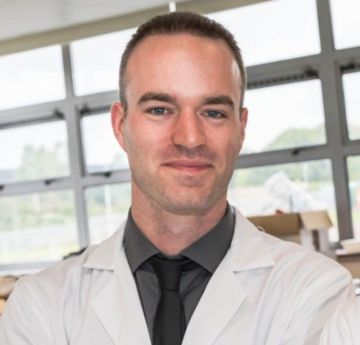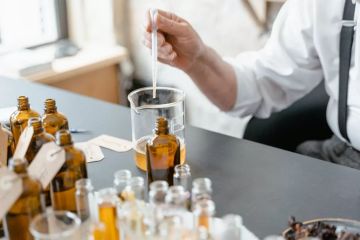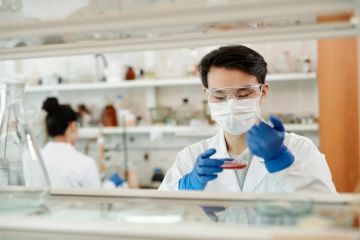Dr Lee Coffey, researcher in the Pharmaceutical and Molecular Biotechnology Research Centre (PMBRC) and the School of Science and Computing, and Dr Triona-Marie Dooley Cullinane, former researcher at PMBRC, were granted a United States patent for novel handheld liquid handling device.

The patent, officially issued by the United States Patent and Trademark Office on 18 March 2025, recognises Dr Coffey’s contribution to simplifying sample dilution procedures in challenging environments.
The patented device enables users to carry out accurate sample dilutions without the need for calculations or access to controlled, sterile settings—features that are especially valuable for researchers and professionals conducting fieldwork or working in regions with limited laboratory infrastructure.
Compact, transportable, and mechanically operated, the device does not rely on electricity or external power sources. This makes it ideal for use in remote or resource-limited areas, supporting greater accessibility and flexibility in scientific and medical applications.
Dr Coffey said the invention was inspired by real-world challenges in field sampling and diagnostics.
“In many parts of the world, laboratory environments are not accessible. I wanted to create something simple, reliable, and usable anywhere—by anyone. This device empowers users to get accurate results without needing complex tools or conditions.”

In addition to its portability and ease of use, the device presents clear sustainability advantages. It significantly reduces the need for energy-intensive processes such as preparing sterile reagents and sterilising vessels, helping to cut down on both time and carbon footprint in research and clinical settings.
The intellectual property related to the device was exclusively licensed during the initial patent application phase to BIOENZ Technologies, a spin-out company founded by Dr Coffey and his co-founders. BIOENZ, which exclusively licences all of its technology from Dr Coffey’s research at SETU, is working closely with the university’s Technology Transfer Office (TTO) to bring the device to market.
Dr James O’Sullivan, Head of Innovation and Commercialisation at SETU, praised the achievement:
“Securing a US patent is a significant milestone that recognises the ingenuity and real-world relevance of Dr Coffey’s work. This innovation has the potential to create real impact globally, especially in low-resource or field-based settings. It’s an excellent example of how SETU research translates into meaningful solutions with commercial and societal value.”
This achievement highlights the strength of applied research at SETU and our commitment to addressing real-world challenges through practical innovation. We warmly congratulate Dr Coffey on this milestone.
Prof. Marie Claire Van Hout Vice President for Research, Innovation and Impact, SETU
The patent grant underscores SETU’s growing reputation as a hub of impactful research and invention, with applications reaching far beyond the laboratory.


